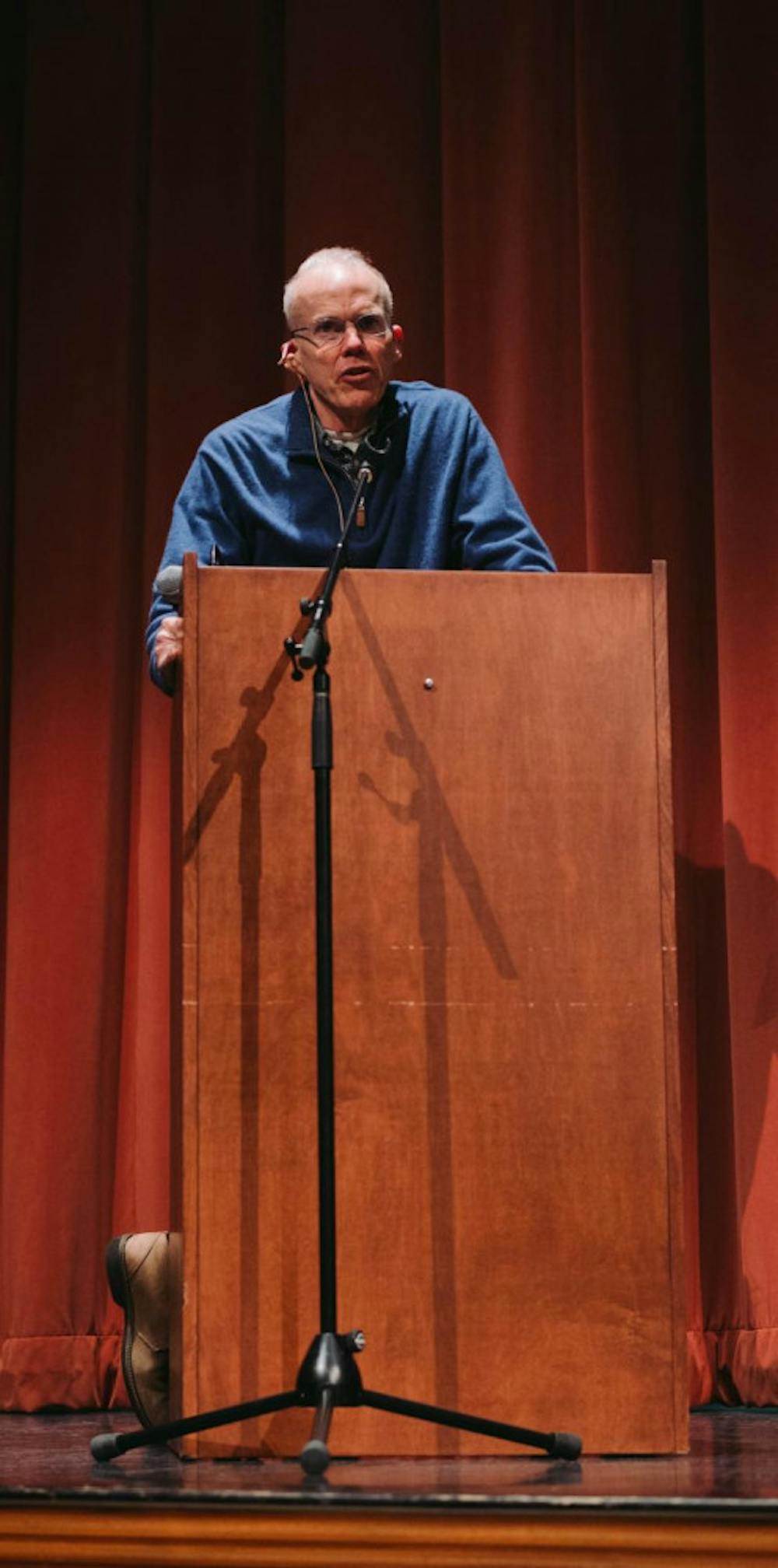This election season, Bill McKibben is turning the spotlight to big banks. He was arrested last month during a sit-in at a Chase Bank in Washington D.C. that served as a trial run for the national mass action, “Stop the Money Pipeline,” set to take on the financial sector this April.
“I think it’s worth remembering that there are two levers of power on our planet,” said McKibben, a writer, activist and scholar-in-residence at Middlebury, in an interview with The Campus. “One of them is political and the other is financial.”
McKibben published a piece in The New Yorker last September calling climate change a timed test. He described political change as usually involving slow compromise even in a working system, something not seen in what he called a “dysfunctional gridlock” in Washington.
“Even if everything went great in the election in November, it’s still not like our government’s going to turn on a dime and do all the things we need,” McKibben told The Campus. He sees rapid political transformation as unlikely at best, especially on a global scale.
But Wall Street, McKibben said, remains the money capital of the world. With swift action needed worldwide, he said it should come from the financial sector as well as the political one.
“When Wall Street moves, it moves quickly,” McKibben said. “If Chase did make some announcement that they weren’t going to be, say, loaning for expansionary fossil fuel projects, then 45 minutes later, the stock market would have reflected that in powerful ways.”
McKibben identifies the money held by Chase and similar banks as a primary driver of the climate crisis in both The New Yorker piece and a New York Times op-ed he co-authored this January, .
“Chase is by far the biggest lender to the fossil fuel industry and they lend the most to all the most aggressive expansionary projects.” McKibben told The Campus. Chase Bank has lent more than $195 billion to oil and gas companies over the last three years — more than the market value of BP oil — to fund projects such as oil drilling in the deep ocean and the Arctic, according to McKibben’s piece in The New Yorker.
The January protest coincided with the last day of Jane Fonda’s Fire Drill Fridays, weekly climate demonstrations in D.C. during which Fonda has repeatedly been arrested. “While Jane and Joaquin Phoenix and Martin Sheen were up on Capitol Hill, about 25 of us went into the nearest Chase branch and had a nice chat with the manager, and just sat down,” McKibben said.
Fonda later led protesters down to the bank, where they rallied out front. Inside, McKibben said, the atmosphere was pleasant and low-key. “We were very, very clear to tell the people working there that we had not the slightest beef with them,” he said. The goal of the sit-in was to reach the bank’s higher-ups in New York — and to give people an idea of what the national day of action might look like in April.
“We’re hoping that there will be demonstrations at hundreds or thousands of bank branches across America,” he said. Among the top targets are Chase, BlackRock and Liberty Mutual, listed on the Stop the Money Pipeline website as three of the world’s biggest funders of fossil fuels.
Because there are no Chase branches in Vermont, McKibben expects that some Vermonters will travel out of state to protest. He said others will get together to cut up Chase credit cards, which include the Amazon credit card, the Southwest and United Airlines mileage cards, the Starbucks rewards card, and others.
Two of the most important things Middlebury students can do, McKibben said, are to let Chase know that they’re not going to ever take out a Chase credit card, and to make it clear that they’re not ever going to go to work at Chase.
McKibben cited Citi, Wells Fargo, and Bank of America as three other major funders of the fossil fuel industry, cautioning that people shouldn’t just cut up their Chase credit card and get a Bank of America one. Better alternatives, he said, include fully-divested Amalgamated Bank on the East Coast, Beneficial State Bank on the West Coast, and Aspirations online.
“Most people don’t have a coal mine in their backyard,” McKibben said. “Most people don’t have a pipeline that runs through their neighborhood. But a lot of people, tens of millions of people, have a credit card in their pocket from Chase and a pair of scissors in the kitchen drawer.”




